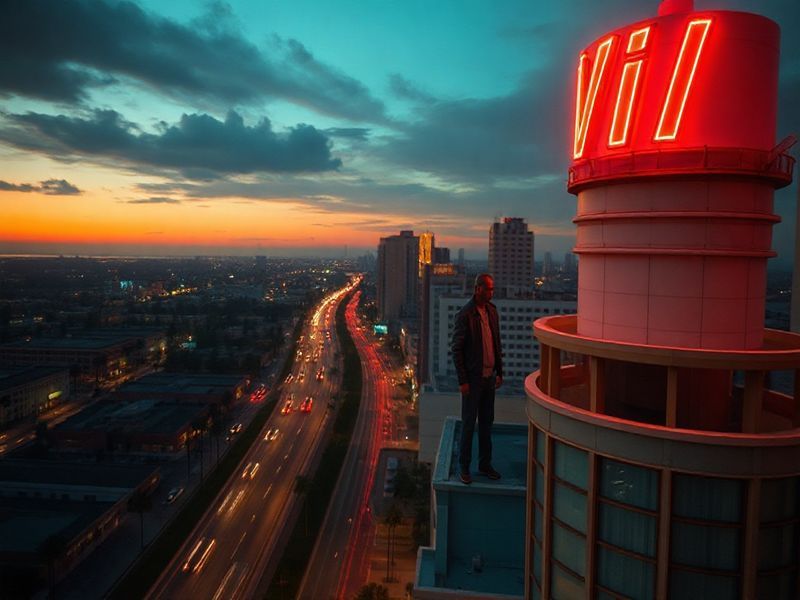GTA VI: How One Game Became the Planet’s Shared Guilty Pleasure and Quietly Reshaped Global Power
As the sun rose over five continents this morning, so did a familiar, slightly guilty thrill: Rockstar has finally deigned to show us Grand Theft Auto VI—or, as foreign-exchange desks immediately rebranded it, “the single most reliable dollar-drain since Taylor Swift’s travel itinerary.” From Lagos broadband cafés to Seoul’s PC-bangs, from São Paulo’s favela LAN shacks to Frankfurt’s boardrooms, humanity hit F5 in perfect, profit-killing synchrony.
The trailer’s neon pastels and TikTok satire confirmed what geopolitical cynics already knew: the game is set in Leonida, a Floridian fever dream where meth labs share strip-mall real estate with crypto bros. In other words, a jurisdiction already governed by GTA logic. Rockstar’s satire is so surgically accurate that real-life Florida legislators reportedly asked whether they could license the map for urban-planning workshops. (Answer: no, but the campaign donations were appreciated.)
International finance took note. The British pound wobbled—not because of Brexit, but because the trailer dropped during London trading hours and half the City’s analysts pivoted from gilt yields to frame-by-frame bikini physics. Analysts at Nomura issued a note estimating GTA VI could shave 0.3 % off global productivity in Q4 2025, a projection they filed under “creative destruction, literally.” Meanwhile, India’s IT giants discreetly booked extra server farms; nothing tanks a subcontinent’s bandwidth quite like 90 million concurrent downloads of a 200-gigabyte crime simulator.
Diplomatically, the release is the soft-power equivalent of a UN Security Council seat. Brazil’s president—facing re-election—told reporters he’d “consider pardoning anyone who steals fewer cars in real life than in GTA.” The Kremlin, ever allergic to satire, banned pre-orders until someone explains why the fictional Vice City SWAT team looks suspiciously well-funded. And China, pragmatic as ever, green-lit a Weibo-only version where all pedestrians wear medical masks and the police politely ask you to consider restorative justice.
For the global under-30 workforce, GTA VI is less a game than a second unpaid internship. Social-media managers from Nairobi to Naples are already crafting memes about “side-hustling IRL while your avatar side-hustles for cartels,” a recursion so bleak it could only be monetized. In Mexico City, Uber drivers report passengers requesting routes that recreate chase scenes; surge pricing, naturally, follows the plot. Economists call this “experiential inflation,” but the drivers just call it Tuesday.
And yet the real plot twist isn’t carjacking—it’s climate change. Rockstar’s hurricane-render tech is so photorealistic that reinsurance firms are using leaked gameplay to stress-test flood models. Lloyd’s of London quietly added “virtual storm damage” to actuarial tables, proving once again that late capitalism can securitize literally anything, including your guilty pleasure.
Behind all the pixelated carnage lies a single, uncomfortable truth: in a world on fire, we still pay $ 70 to set a fictional one ablaze. Perhaps that’s why the trailer’s most liked comment, translated from Bahasa Indonesian, reads, “Finally, somewhere the cops can’t kettle us.” Dark humor, yes, but also global consensus: if the planet’s going to hell, we might as well drive there at 120 mph in a stolen Cheetah, radio blaring.
Rockstar will sell 30 million copies by lunchtime. Some governments will tax it, others will ban it, and all of them will play it in secret. Because in the end, GTA VI isn’t just American excess exported abroad; it’s the one export we all agree on—an interactive postcard from a world slightly worse than our own, reassuring us we’re not quite there yet.
Sleep tight, Earth. The loading bar is at 96 %.







